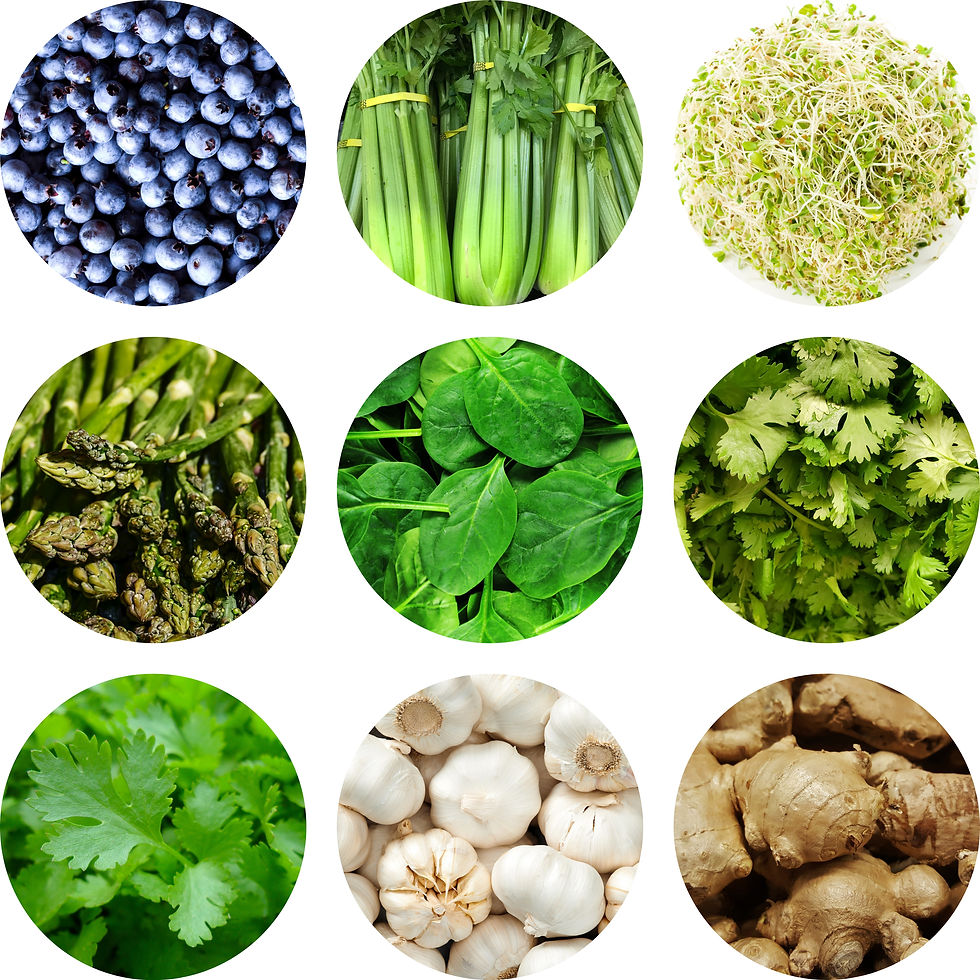Unveiling the Mysteries of Epstein-Barr Virus and Auto immune Diseases: A Path to Cleaner Living
- Estee Dvora
- Aug 6, 2023
- 3 min read
Updated: Jan 10, 2024

The connection between the Epstein-Barr Virus (EBV), often known for causing mononucleosis, and a range of auto immune disease has raised eyebrows in the medical field. Emerging studies have highlighted an increased risk for seven specific auto immune disease following an EBV infection:
Systemic lupus erythematous
Rheumatoid arthritis
Multiple sclerosis
Inflammatory bowel disease
Type 1 diabetes
Juvenile idiopathic arthritis
Celiac disease
These studies propose that the EBV may act as a trigger for these autoimmune diseases by activating certain genes. However, what does this revelation mean for those who have encountered the EBV?
A Brief Overview of the Epstein-Barr Virus
EBV is an extremely common virus that resides within the herpes virus family. Although it’s often associated with mononucleosis, nearly everyone comes into contact with it at some point. Following initial exposure, the virus typically remains dormant within the body. However, in some individuals, the virus reactivates, which can lead to prolonged health issues.
Unpacking Auto immune Disease
An auto immune disease results from an error within the immune system, where it mistakenly attacks its own cells. This initiates inflammation and tissue damage, leading to an array of symptoms, including pain, fatigue, and organ-specific issues. For instance, if the immune system attacks the pancreas, which is responsible for insulin production, the body will struggle to process sugars effectively.
The Role of Genetics in Auto immune Disease
Our genes aren’t as fixed as we once believed. Various factors, including illnesses and environmental changes, can "switch" genes on or off. This mechanism is akin to a circuit breaker: flip a switch, and the power goes out. Flip it back, and the power returns. In this context, the "power" refers to the positive or negative effects genes have on our health. Thus, individuals may carry a genetic predisposition for certain diseases, which may surface under specific circumstances.
EBV: A Gene Switch for Auto immune Disease?
Emerging research suggests that EBV has the capability to "switch on" genes that lead to auto immune diseases. However, this mechanism doesn’t appear to affect individuals without a genetic predisposition. A closer look at EBV's impact on genetics revealed that a protein called Epstein-Barr virus nuclear antigen 2 (EBNA2) interacts with numerous genes associated with lupus risk.
Further studies encompassing a variety of illnesses found a similar association between EBV and six other autoimmune diseases.
The Implications for You
This breakthrough in our understanding of EBV’s role in triggering auto immune diseases warrants further research. Early studies have hinted towards the potential for new treatments, with investigations already underway for antiviral treatments for multiple sclerosis.
If these findings are validated, it could result in more effective treatments for many auto immune diseases. Current research may also facilitate the development of an EBV vaccine, which could prevent the onset of multiple lifelong diseases.
A Holistic Approach with Clean Lifestyle
At Clean Lifestyle, we believe in adopting a comprehensive approach to maintaining health. In addition to staying updated on medical advancements, it's crucial to pay attention to our diet and lifestyle habits. Here are some foods and supplements that can enhance your immune system, helping your body ward off viruses like EBV, along with their respective benefits.

Foods:
Wild blueberries: Packed with antioxidants, great for brain health.
Celery: Anti-inflammatory and aids digestion.
Sprouts: High in nutrients and antioxidants.
Asparagus: Rich in vitamins A, C, E, K, and B, aids digestion.
Spinach: High in iron and calcium.
Cilantro: Removes heavy metals from the body.
Parsley: High in antioxidants, supports bone health.
Coconut oil: Boosts heart health, antimicrobial effects.
Garlic: Boosts immune function, reduces blood pressure.
Ginger: Anti-inflammatory and can help with digestion.
Supplements:
Remember, these are general recommendations, and individual requirements can vary. Consult a healthcare provider before making any significant changes to your diet or supplement regimen.
The Epstein-Barr virus (EBV), a common infection that causes mononucleosis, has been linked to seven autoimmune diseases. This connection is believed to stem from the virus's potential to "switch on" specific genes. Although this research is in its early stages, it points towards promising new treatments for autoimmune diseases.
If you've been diagnosed with an EBV infection or one of the seven linked autoimmune diseases, it’s important to have a conversation with your healthcare provider. Early diagnosis and treatment are key to maintaining long-term health.
Please note: The information provided in this blog post is intended for general informational purposes only. It is not a substitute for professional medical advice, diagnosis, or treatment. Always seek the advice of your physician or other qualified health provider with any questions you may have regarding a medical condition.




Wow so interesting! Thank you for linking the supplements!